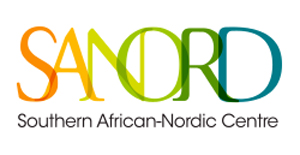Leadership
SANORD facilitates networking and meetings among leaders, researchers and students from Nordic and Southern African institutions to discuss and plan joint endeavours.
Members have access to contact persons and research groups. The Centre assists with the organisation of regular academic events, including conferences and symposia.
Networking:
SANORD facilitates networking and meetings among leaders, researchers and students from Nordic and Southern African institutions to discuss and plan joint endeavours. Members have access to contact persons and research groups. The Centre assists with the organisation of regular academic events, including conferences and symposia.
Joint research:
SANORD seeks to stimulate research for the creation and sharing of knowledge and understanding on issues of concern. Members drive the process of bringing people together. Experience and expertise are gained in multilateral and cross-disciplinary research groups. SANORD members identify academic fields and research themes where the distribution of knowledge and resources will expand the capacity and achievements of each member.
Facilitation and support:
Obligations of SANORD members
Members undertake to pursue the following:
1) Multilateral networking and cooperation
Members engage openly and resourcefully with other members, aiming to create free and reciprocal relations, productive learning and innovation processes.
2) Leadership
Members provide initiative and leadership for the development of common programmes and projects with societies, policymakers and others in the two regions.
3) Events and information
Commitments by our members to the SANORD network
1 – SANORD membership fee
SANORD is a nonprofit organisation with an affordable annual membership fee. The fee is kept low to encourage participation by as many institutions in the two regions as possible.
-
- Nordic region: 4,500 EUR
- Southern African region: 30,000 ZAR
2 – SANORD meetings
Members are expected to attend the annual SANORD Contact Persons and Council meetings at their own expense.
3 – Institutional representatives and contact persons
Members dedicate the necessary human resources, specifically:
-
- Principal and institutional deputy. The principal of the institution and their deputy will typically represent the institution in the Council.
- SANORD contact person. The institution will assign the role of contact person to a member of staff, who will work closely with the leadership, handle administrative matters and be a contact person for the SCO and other members.
- SANORD individuals.Member institutions will encourage staff and students with an interest in the SANORD regions and strategy to be actively involved, to register on the SANORD portal and to share knowledge in their respected fields.
- Web-editor. The institution will assign a local web-editor who will work with the SCO in connection with the dissemination of information and issues related to the SANORD portal, the SANORD Newsletter and various other channels.

